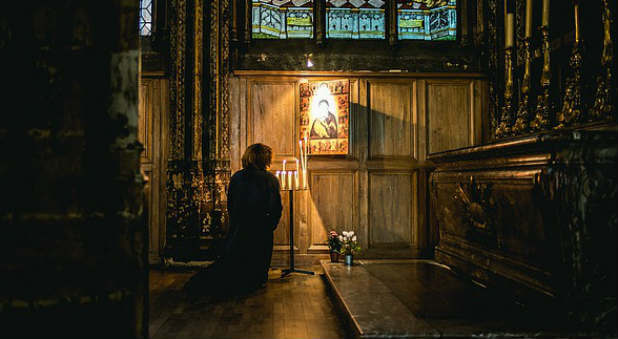In Matthew 6, we find one of the best-known sections of Scripture in the Brit Chadashah or New Testament. While millions are familiar with the words from this text, and many repeat the words daily or weekly as a part of liturgical worship, this familiarity has also opened the door to misunderstanding. Let’s look at these verses:
“Therefore pray in this manner: Our Father who is in heaven, hallowed be Your name. Your kingdom come; Your will be done on earth, as it is in heaven. Give us this day our daily bread. And forgive us our debts, as we forgive our debtors. And lead us not into temptation, but deliver us from evil” (Matt. 6:9-13a).
A simple look at the introduction lets us know that while these powerful words were spoken about prayer, the context tells us that Yeshua, Jesus, was not giving the disciples a formulated prayer, but He was providing instructions for prayer. He was not giving them a prayer to recite. He was teaching them a format or formula for their individual prayer lives.
In the verses preceding, Yeshua tells his followers not to pray like the heathen and then tells them how to pray, not what to pray. In other words, Matthew 6:9-13 isn’t a liturgical prayer to recite over and again; it is an outline to be followed in order to have a powerful and effective prayer life. As we read through the words of instruction, we find instructions to honor and praise our G-D and Creator, our Father.
We are further taught to acknowledge His kingship and kingdom both heavenly and earthly. The lesson continues by teaching us to be thankful for His provision. We are then told to forgive, and the teaching ends by reminding us that only G-D can keep us from temptation and deliver us from evil. There is amazing power in prayers that follow these instructions, provided to us so clearly and simply by our Messiah. Even so, the key to revival begins with the word “our.” Notice that this word as well as the words “us” and “we,” used throughout these verses of instructions on prayer, are all plural words. In other words, Yeshua’s instructions for His followers on prayer teach us that our prayers must be prayed within the context of unity and community.
The power of the L-RD’s Prayer is not in its repetition, nor is it in a person praying individually for their own needs alone. The power of these words of instruction and direction is in the unity intended to be fostered through prayer for community. The words are not “my Father” or “forgive me” but “our Father” and “forgive us.” Revival will come when our prayers become patterned after His instructions and when we become unity minded. {eoa}
Eric Tokajer is author of With Me in Paradise, Transient Singularity and OY! How Did I Get Here?: Thirty-One Things I Wish Someone Had Told Me Before Entering Ministry.
























